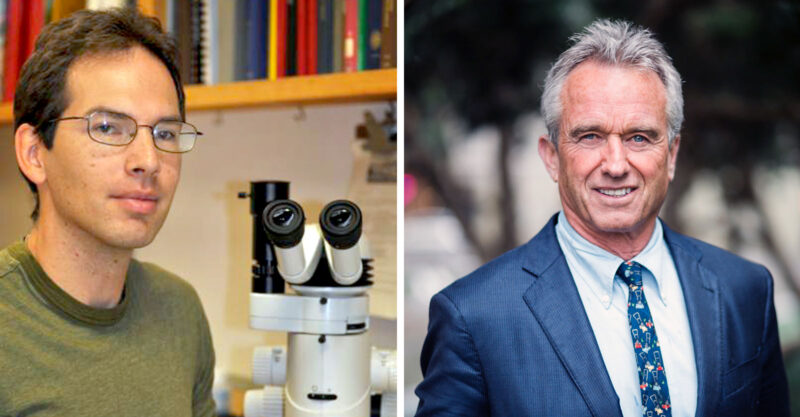Miss a day, miss a lot. Subscribe to The Defender's Top News of the Day. It's free.
In an appearance on “RFK Jr. The Defender Podcast,” entomologist Brian Brown, Ph.D., spoke with Robert F. Kennedy Jr., chairman and chief legal counsel of Children’s Health Defense, about insects and the ecosystem.
Brown is head of the entomology department and curator of entomology at the Natural History Museum of Los Angeles County.
He also is author of a study on “insect abundance and richness” in the canopy of an Amazonian tropical forest in Brazil, in a project that discovered hundreds of new species.
The study recommended action to protect tropical ecosystems “against pervasive stressors, such as climate change, deforestation, fragmentation of the landscape, and use of pesticides.”
“Why should people like me — who are concerned with children’s health and the future of our children … be concerned about the disappearance of insects?” Kennedy asked Brown.
Brown said:
“Insects are responsible for pollinating our food crops. That’s just about as important as you can get in terms of ecosystem services and ecosystem processes. So they help provide us with clean air, water, food — all those sorts of things that we take for granted every day.
“They do all kinds of things we can’t do without.”
Kennedy asked about insect extinction, and Brown’s answer was somewhat reassuring. While sheer numbers of insects are declining, he said, there is less evidence for widespread extinction.
“What the data show is that the numbers of insects have greatly declined,” he said.
Anecdotally, we all can see that there seem to be fewer bugs today than there once were, he said.
“People are driving across the country and hardly having any insects collide with their car,” Brown said.
“It’s kind of a gross and unappealing way of gauging the loss of a portion of our ecosystem, but it is one that we actually notice. And the same with porch lights … insects are not coming to lights in backyards or insect traps … in anywhere near the same numbers.”
Brown cited pesticides and habitat loss as the main culprits behind declining insect numbers.
Kennedy asked about bees and the “zombie fly” that preys on them. Brown was careful to differentiate between honeybees and the thousands of bee species native to the U.S.
Honeybees are extremely important for our agriculture since their pollination allows farmers to grow more food per acre, Brown said. So the threat posed to them by zombie flies is concerning.
“Whenever there’s some kind of problem with honeybee [populations], it directly affects our well-being,” he said.
Brown encouraged listeners to appreciate the diversity of the insects around them. He said:
“I like to study insects … because there is an almost inconceivable number of species out there. There are so many new things to discover … there’s still so much exploration to do. We are losing biodiversity rapidly around the planet, but there’s still a lot to see and to enjoy.”
Watch the podcast here:







